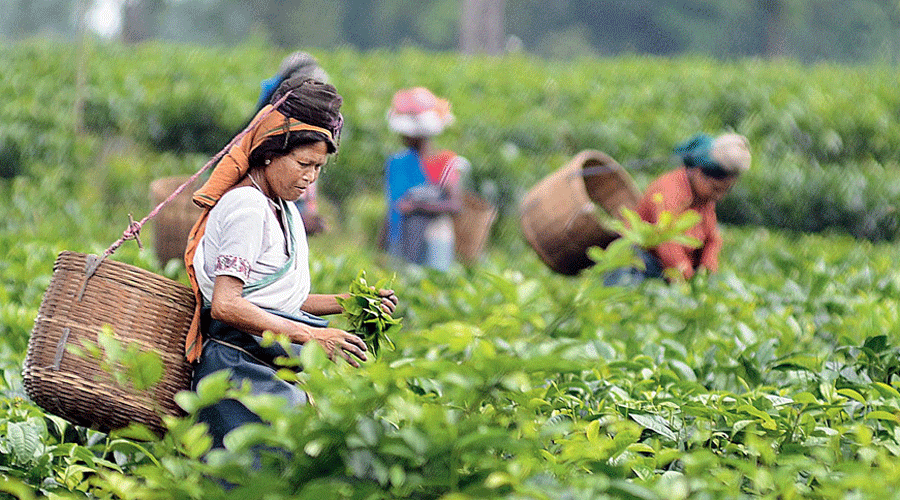A crisis is brewing in the Darjeeling tea industry with production from the second-largest owner of gardens in the hills coming to a standstill in the face of mounting workers’ dues that have crippled operations.
Darjeeling Organic Tea Estates Pvt Ltd (DOTEPL), owned primarily by a clutch of European investors, operates 10 gardens in the hills, including the marquee estates Ambootia and Happy Valley, employing close to 7,000 workers.
Union sources claimed that a majority of the workers had not been paid for the last three fortnights. The daily wage for a tea garden worker is Rs 232, paid usually on a weekly or fortnightly basis.
With the approach of the festive season, when the workers are paid an annual bonus, the trouble at DOTEPL may spiral out of the bushes at the gardens and shake up hills politics, which has had its share of unrest over the years.
An alarmed Anit Thapa, chief executive, Gorkhaland Territorial Administration, had convened a meeting where the company executives were told to clear the dues within a week. That deadline is at hand.
“The management tried to buy time. Thapa stressed that the workers have to be paid their dues within a week or else plans would be put in place to start a workers’ cooperative in the tea gardens,” a source said.
The company said it regretted the situation but promised to do everything to mobilise new investment.
“We regret the unrest at the gardens. We regret that workers’ wages are being paid late,” Rembert Biemond, acting chairman of DOTEPL, said in an email to this newspaper.
The company is trying to enlist new investors to weather the storm, he added, but blamed the crisis on the cumulative problems the Darjeeling tea industry has faced since 2017.
Reacting to the suggestion of workers’ unions being formed to run the gardens, Biemond, who represents the foreign shareholders, said the procedure would further complicate the delicate situation and lead to more chaos.
“We will do all to save the livelihood of our workers and their dependents and save the gardens,” he said.
DOTEPL produces about 1 million kilograms of tea a year, about 15 per cent of the entire production of Darjeeling tea, admired by connoisseurs the world over for its muscatel flavour.
Industry sources said that production had come to a standstill with the irate workers not turning up for work and resorting to picketing and gate meetings instead.
Thapa’s Bharatiya Gorkha Prajatantrik Morcha (BGPM) has asked the tea workers affiliated to the party not to report for work at the DOTEPL estates.
“We want a new management to take over the gardens. This instability in these companies has gone on for too long,” said J.B. Tamang, working president of the Hill Terai Dooars Plantation Labour Union, which is affiliated to the BGPM.
The Hamro Party and the trade union arm of Bimal Gurung’s Gorkha Janmukti Morcha, too, have demanded a new management but are against the BGPM’s call for workers not to join work.
Some tea planters blame the present management, which has been in complete charge of the company since 2020 after the ouster of the Indian promoter. But they also add that the majority of the 87 gardens in the Darjeeling Hills are in poor financial condition.
Darjeeling tea faces a challenge to its market share, in India and abroad, from tea imported from Nepal that is similar in flavour but is priced lower.
The average price realised by Darjeeling leaf at auctions from April to the middle of August this year is Rs 412.8 a kilogram, 15 per cent below the average price during the same period last year.
The cost of production has, however, increased in tandem with the general price rise and the wage bills, squeezing the margins of the gardens as they grapple with historically low productivity.
The 104-day strike in 2017 and the Covid-induced lockdown in 2020 had hit production, allowing Nepal teas to fill the void.












